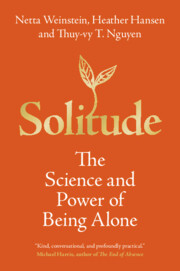The current research sought to better understand the effect of mindfulness on well-being by examining self-connection as a potential mediator. We define self-connection as: (1) an awareness of oneself, (2) an acceptance of oneself based on this awareness, and (3) an alignment of one’s behavior with this awareness. Based on this definition, we measured self-connection, mindfulness and well-being using two distinct samples and two different operationalizations of well-being. In Study 1, we recruited 101 people from Amazon’s Mechanical Turk (MTurk) and asked them about their connection to themselves, mindfulness and flourishing. In Study 2, we surveyed an additional 104 people from MTurk, again measuring mindfulness and self-connection. However, this time we operationalized well-being as satisfaction with life. As expected, mindfulness predicted self-connection and well-being in both studies. Self-connection also predicted well-being and partially mediated the relationship between mindfulness and well-being. These results suggest that mindfulness bolsters self-connection, which in turn increases people’s well-being.


